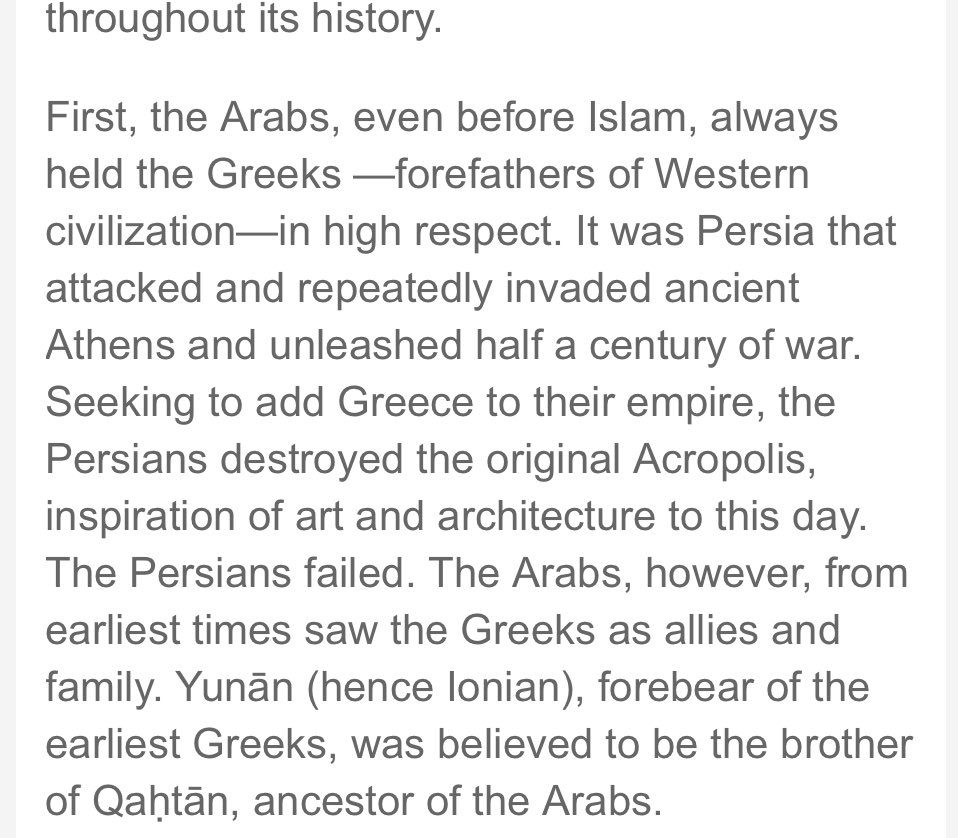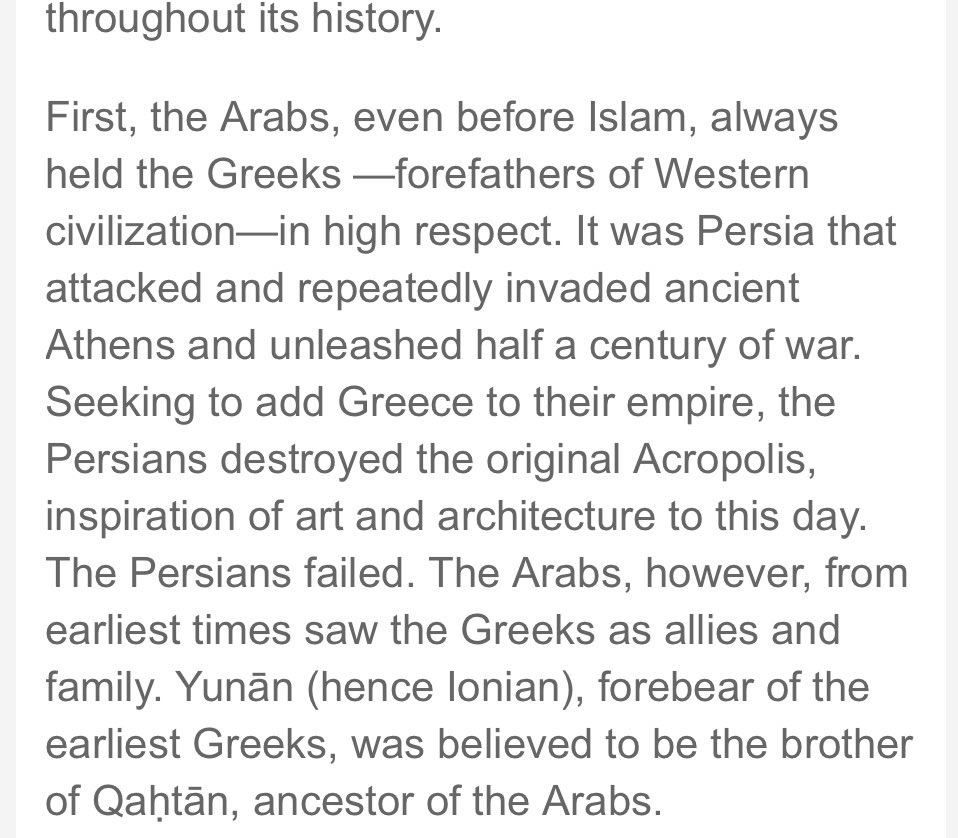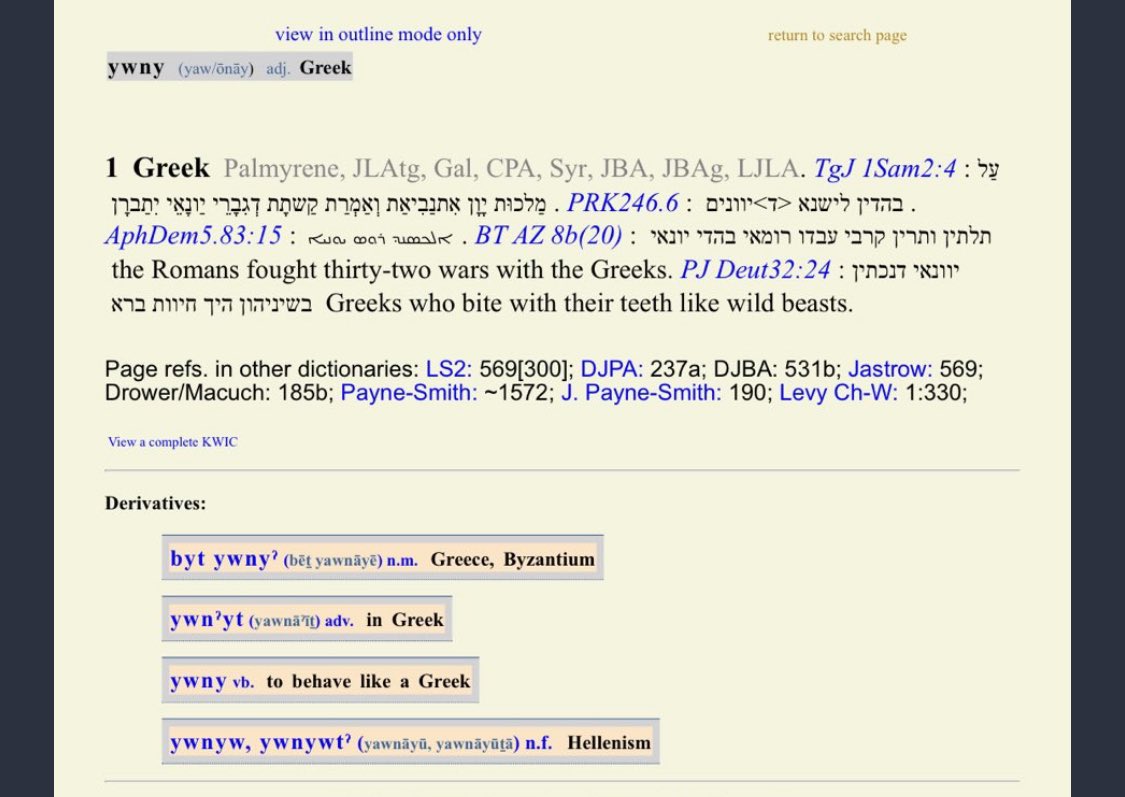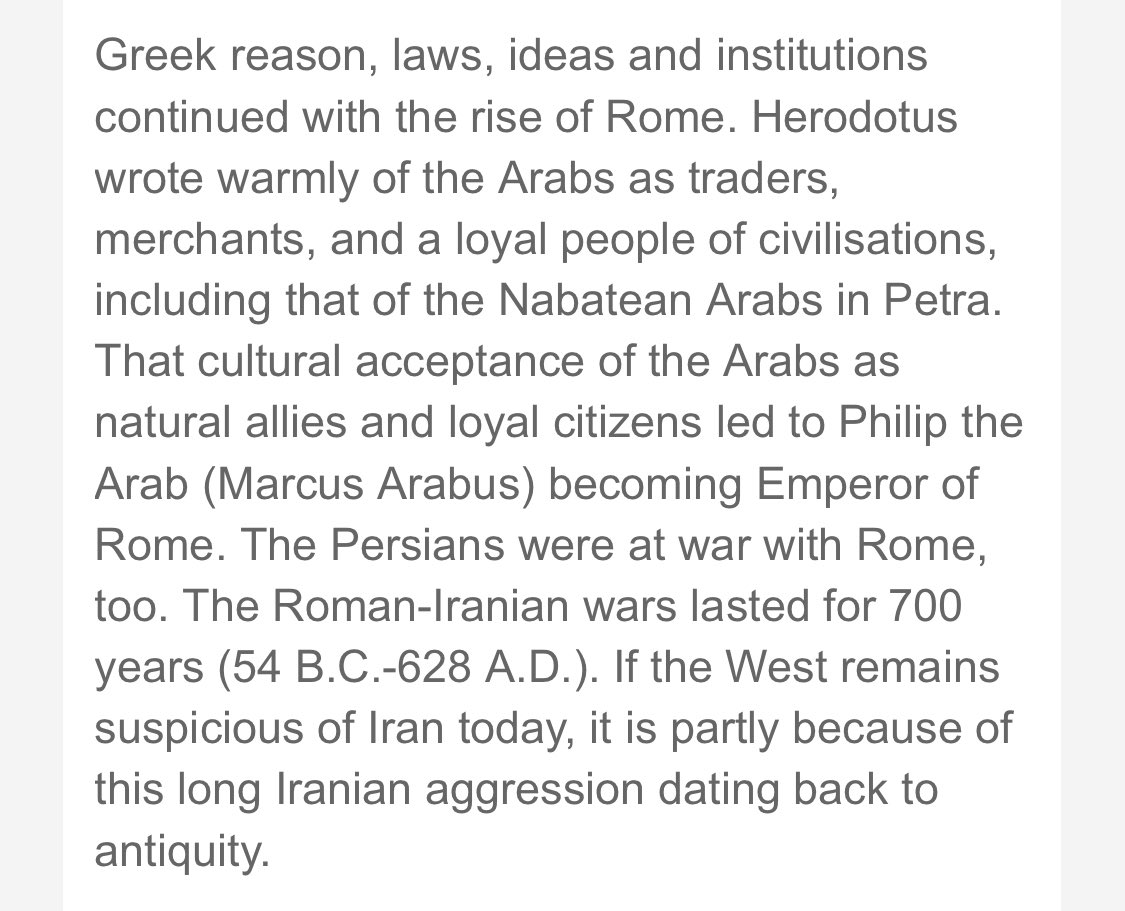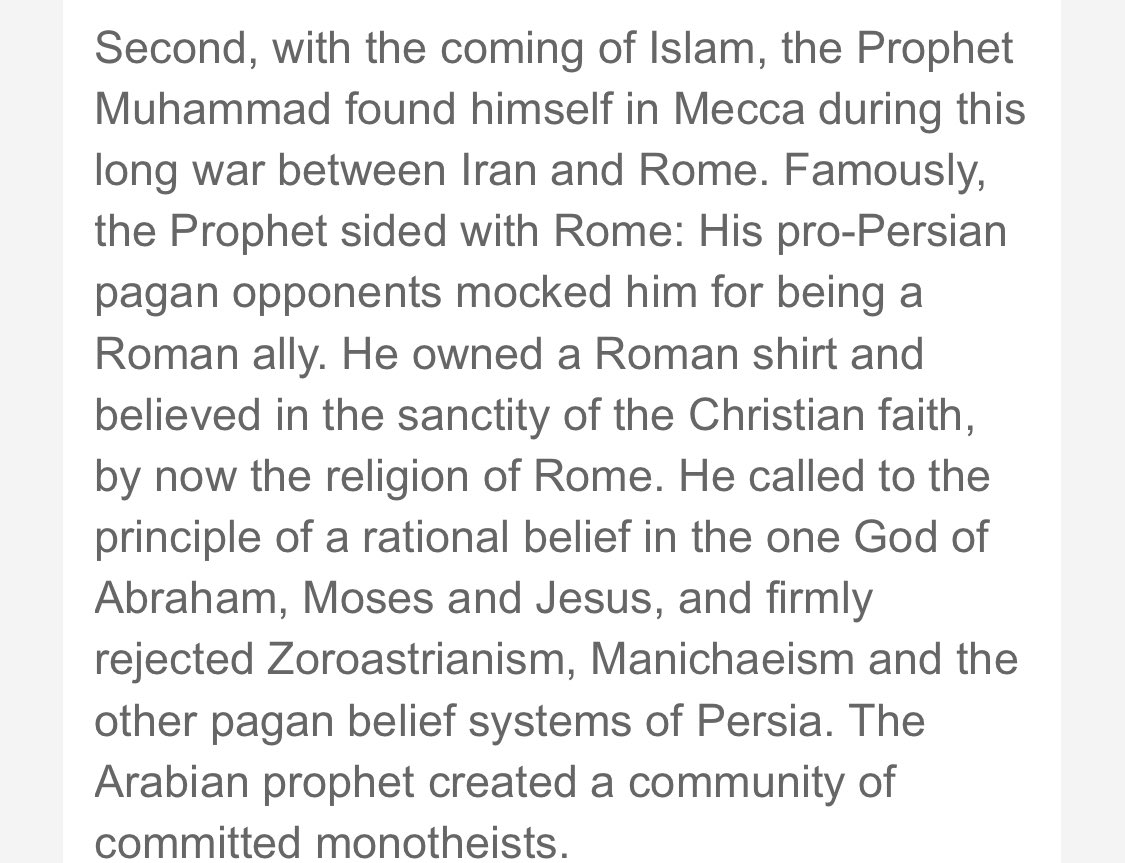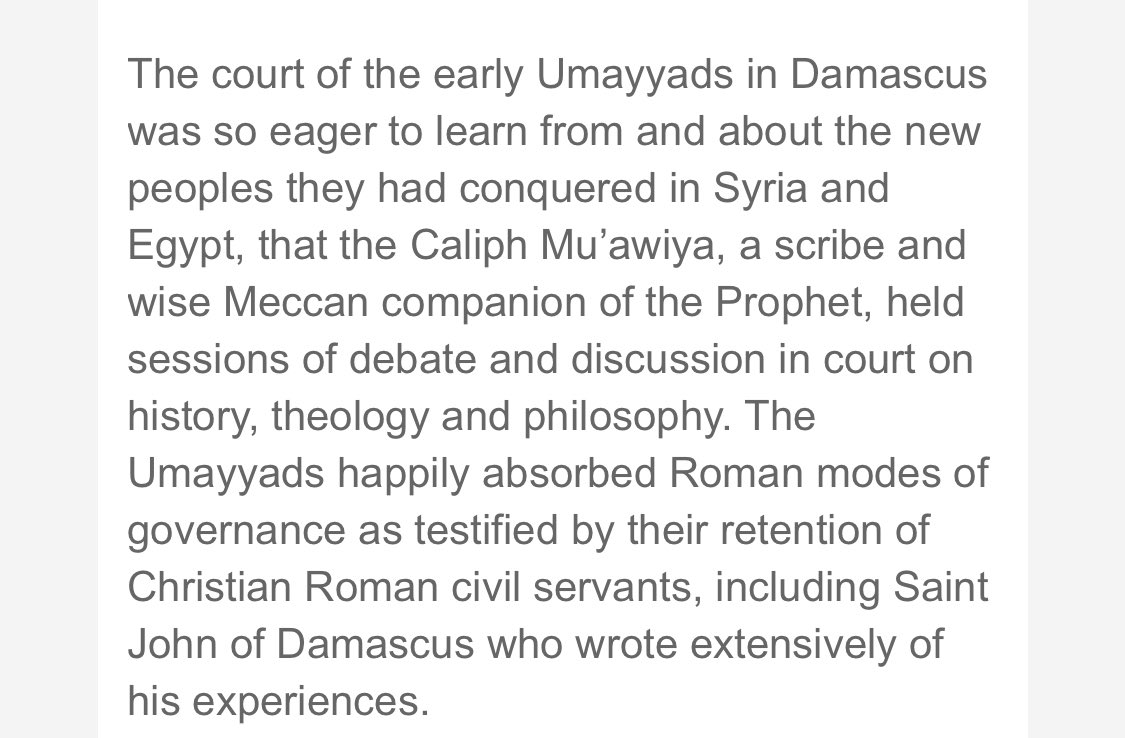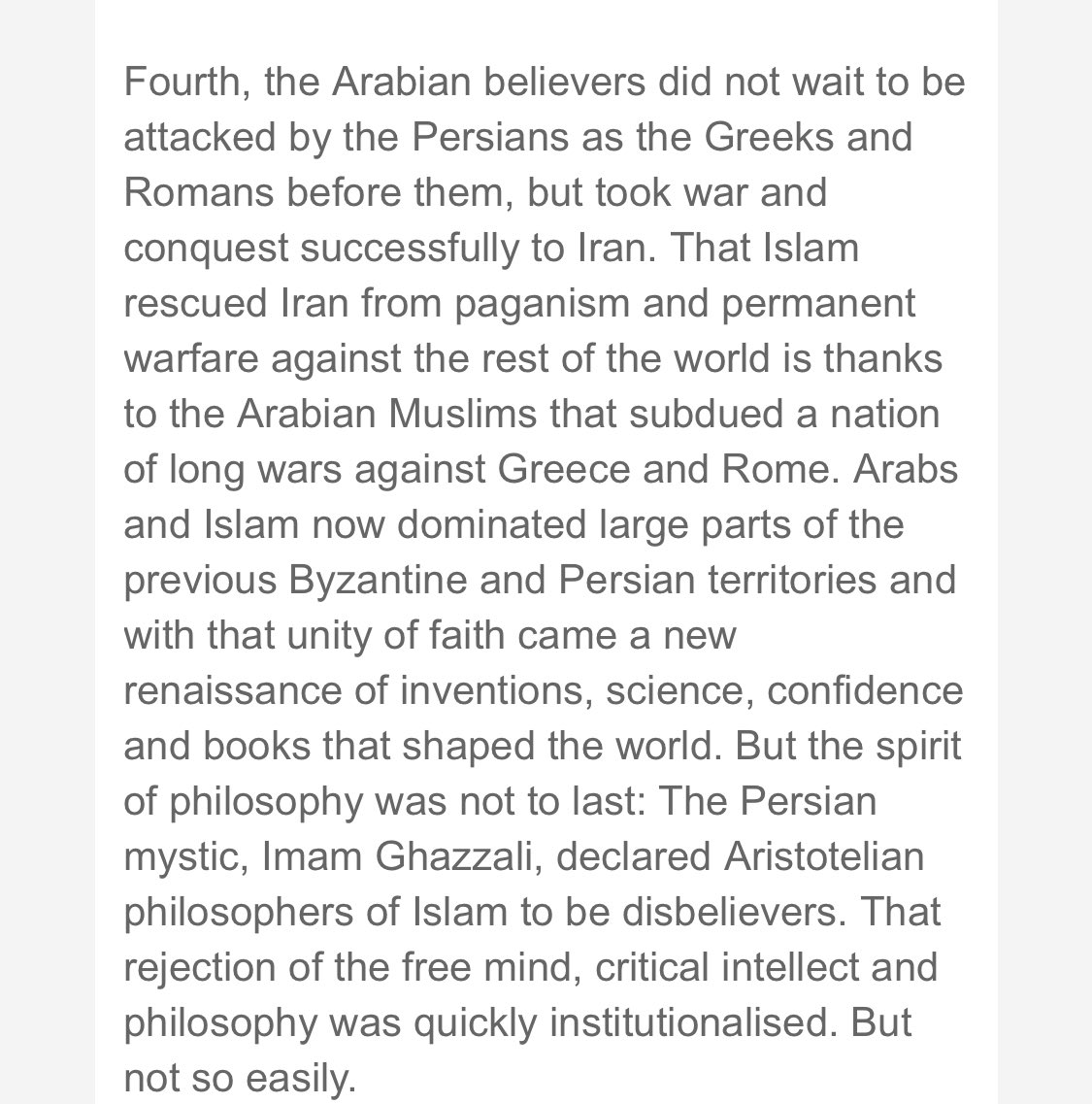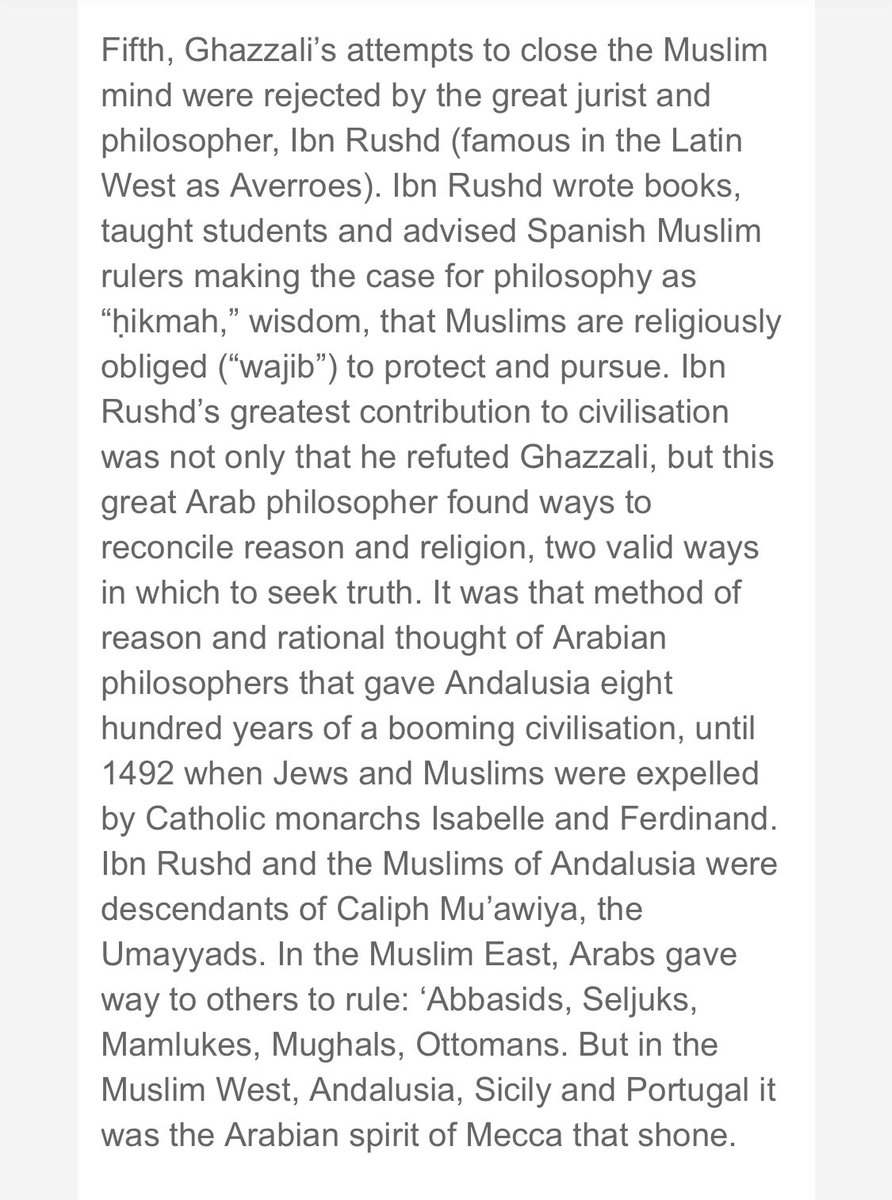1/The author, @Ed_Husain, made a string of errors and specious arguments in this piece. The analysis of medieval Islamic history and philosophy on display is not only outdated, but quite amateurish. A quick thread and list of errata https://english.alarabiya.net/en/views/news/middle-east/2020/09/22/On-philosophy-renaissance-and-Saudi-Arabia-Civilization-in-six-points-">https://english.alarabiya.net/en/views/...
2/mistake 1: “Arab” & its cognates in ancient times did not refer to a singule ethnic identity of “Arabness”. This is false claim, rejected by historians. Mesopotamian & Hellenistic jargon about so-called ancient “Arabs” wasn’t describing actual Arab ethnos. See P Webb & a Jallad
3/as historian of pre-Islamic Arabia, Ahmad Jallad has repeatedly said, the Arabs weren’t one homogenous political group. And Arab shouldn’t be thought of in the same way as “Roman” - it is not a political/ethnic unit but it was an endonym.
4/Some of ancient “Arabs” had Greek allies, other has Persian allies. “Arab” singled a fizzy combination of cultural/linguistic features (Jallad).
5/mistake 2: Qahtan being the forefather of (southern) Arabs is a later myth from the 8th-9th century AD started by belletrists with fecund imaginations. This is axiomatic knowledge known to all students of Arabic literature.
6/mistake 3: Yunan (Ionian) is from Middle Persian - not Arabic. Arabic يونان comes from time of Persian Achaemenid Empire. It’s derived from Yauna, found in Persepolis administrative documents 4th C BC. Yunan in Arabic came from Persian, mediated by Hebrew and Syriac
7/mistake 4: that Iranianess and Iranian people have remained the same from antiquity to present assumes Iranian mentality is singular, fixed, and Iranians genetically predisposed to some actions, as a herd. There’s a word for this, it starts with R.
8/mistake 5: Neither Zoroastrianism nor Manchaneism were pagan religiosities. Medieval Muslims considered them People of the Book. The Quran 22.17 lists them among Jews and Christians, “those who believe”.
9/mistake 6: when Justinian closed the Academy in 529 AD & forbade teaching of pagan philosophy, Greek philosophers fled to Persia, to court of Khusro I. They included Damascius, Simplicius, & Priscianus Lydus.
10/mistake 7: Farabi & Ibn Sina were Persians. Aside from Kindi (& few others) the overwhelming majority of Muslim philosophers were Persian. And it was Arabic-speaking Christians that transmitted Ancient Greek knowledge to Muslims. Dogmatism is not right term here.
11/mistake 8: There’s no serious evidence that Mu’awiyyah held these court debates. These came later, during Abbasid era. Saint John of Damascus wrote scathing critiques of Muslims, referring to them as “forerunners of the Antichrist”
12/mistake 9: Ghazali did not declare Aristotlelian philosophers disbelieves. He condemned three doctrines (claims of eternity of the world & claims of God’s inability to know particulars, etc) as amounting to disbelief. He employed Aristotelian logic & arguments in his writings.

 Read on Twitter
Read on Twitter